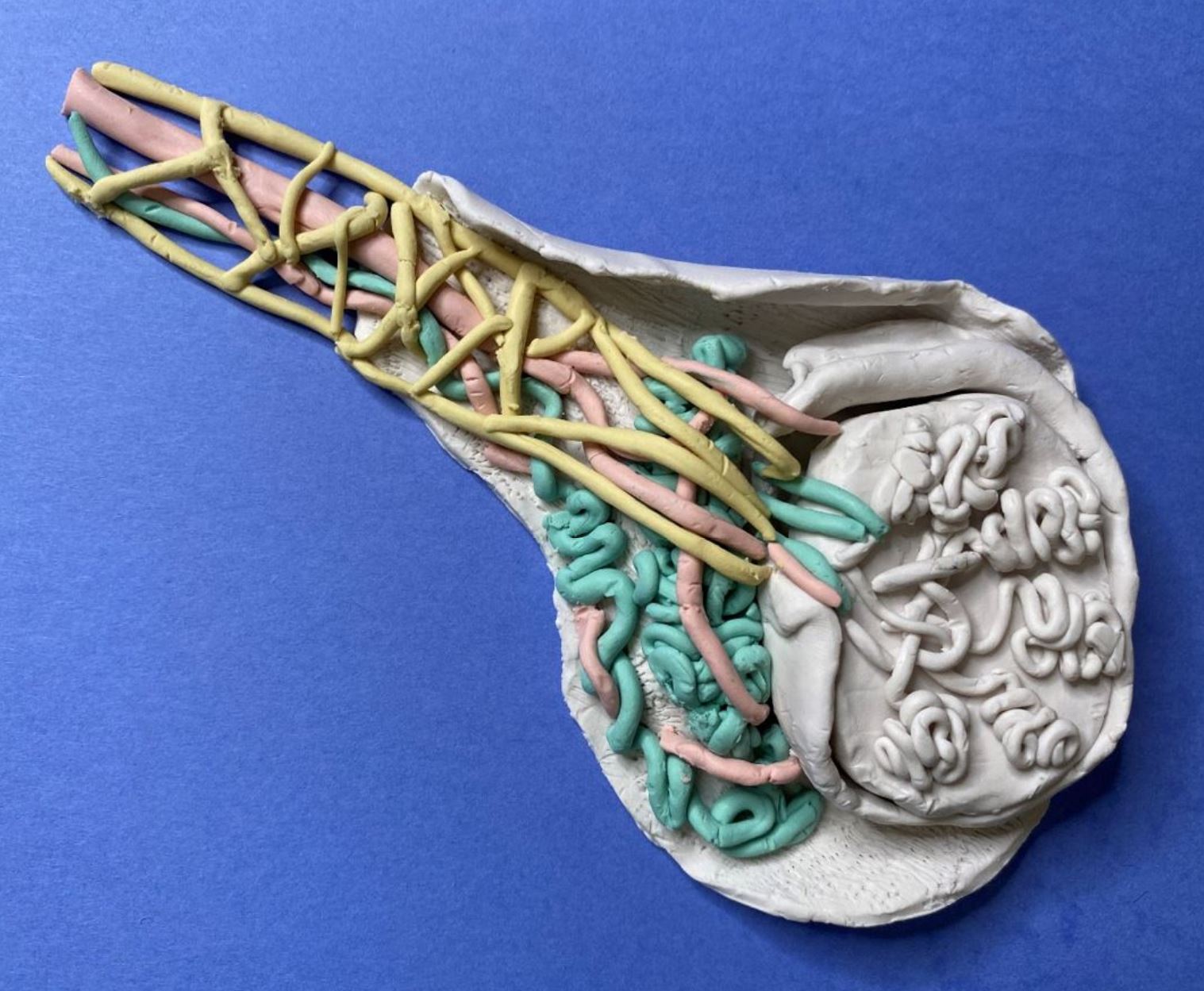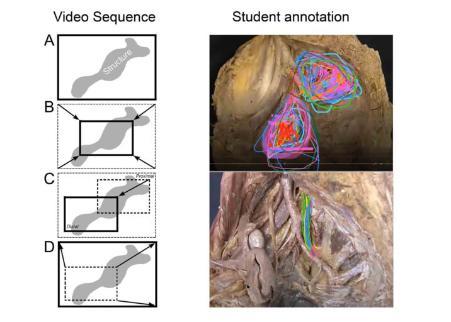Last March, as the onset of the COVID-19 pandemic drove educators and learners online, the VCU School of Medicine had to quickly adapt. Faculty members were challenged to launch new and additional coursework to translate material traditionally delivered through clinical rotations and on-campus classrooms into a virtual learning format. Now, their innovations are changing the landscape of how students learn.
 In the Department of Surgery, for example, educators sent clay modeling kits to four senior medical students participating in the Division of Urology’s virtual sub-internship. In the absence of traditional dissection opportunities, the assignment was to build 3D models of genitourinary organs. M3 Shannon Leung, who presented about the project during the 2021 Virtual Health Science Education Symposium, said the exercise displayed creativity, dexterity and attention to detail among the participants, none of whom had artistic backgrounds.
In the Department of Surgery, for example, educators sent clay modeling kits to four senior medical students participating in the Division of Urology’s virtual sub-internship. In the absence of traditional dissection opportunities, the assignment was to build 3D models of genitourinary organs. M3 Shannon Leung, who presented about the project during the 2021 Virtual Health Science Education Symposium, said the exercise displayed creativity, dexterity and attention to detail among the participants, none of whom had artistic backgrounds.
“While our findings are limited by our small sample size, the clay modeling activity was a unique way to enhance learning of urological anatomy and boost student engagement,” Leung said. “Our findings parallel current literature demonstrating largely positive perspectives toward clay modeling.”
From Cadaver to Computer
Faculty and students also were challenged to complete hands-on anatomy courses entirely online. To facilitate virtual learning, instructors recorded cadaver dissections that students normally would have completed in the laboratory, using active shifts in perspective. They then used those videos, plus an annotation tool to draw answers to anatomical questions, during classes over Zoom. 
“The videos were very well done, and the practical exam that the students completed — where they had to identify different anatomical structures — was perhaps much clearer than in past years,” Christopher Woleben, M.D., interim senior associate dean for medical education and student affairs, told the VCU School of Medicine’s magazine 12th and Marshall earlier this year.
According to research presented by Kelly Harrell, Ph.D., M.P.T.; Melissa McGinn, Ph.D.; Cherie Edwards, Ph.D.; and M. Alex Meredith, Ph.D. at the 2021 Virtual Health Science Education Symposium, students showed a 14% improvement in scores on practical exams compared with five previous courses.
The group concluded that the faculty-prepared examples may have allowed students to more clearly see structures that are often difficult to dissect, such as muscles, while having a minimal effect for less visually complicated structures, such as bones. Faculty involved in the project intend to scale up video production to create an entire medical gross anatomy course online.
Interprofessional Teamwork
Interprofessional education, or IPE, is an accreditation requirement for most health science programs. According to Abigale Matulewicz, PharmD, an assistant professor at the VCU School of Pharmacy who presented at the 2021 Virtual Health Science Education Symposium, IPE courses typically center around developing skills in four core competencies: values and ethics; roles and responsibilities; interprofessional communication; and teamwork.
Matulewicz’s presentation discussed the preliminary results of translating an existing interprofessional foundations course to an asynchronous online format. The challenge, she said, was to offer independent activities while still holding students accountable and engaging them in “interprofessional teamwork that we felt was so critical.”
The course evaluation results reveal that the new format was well-received by students, and those enrolled in the asynchronous online course reported positive attitudinal changes at a rate consistent with the previous in-person class. Matulewicz and her team concluded that the online format successfully met interprofessional education objectives, and they plan to fine-tune the course content and expand its activities for future implementation.
Looking Ahead
Even with normalcy on the horizon, the ongoing COVID-19 pandemic underscores the reality that medical schools must remain agile. The VCU School of Medicine remains committed to providing innovative, collaborative learning opportunities for students and trainees, and many of the lessons learned both in and out of the classroom during this academic year will inform and reframe teaching practices in the future.
“There will be a blend of what we have done in the past and what we’ve done in the past few months,” Woleben said. “There are some lessons that we’ve learned that will stick. And that’s a good thing.”